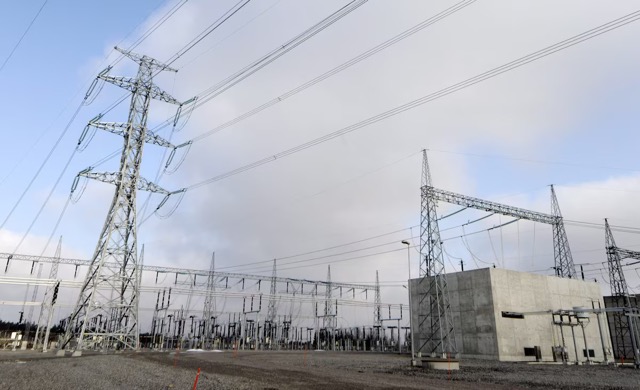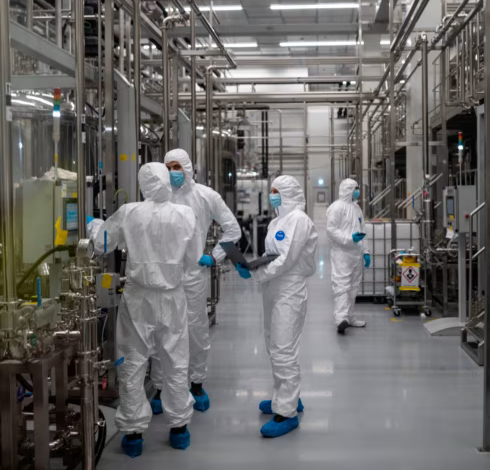As Europe’s push to build a self-sufficient electric vehicle (EV) industry faces setbacks, the continent is grappling with a critical dilemma: can it reduce its reliance on Asian-made batteries?
The recent collapse of Northvolt, once seen as a beacon of Europe’s battery manufacturing hopes, has cast doubt on the region’s ability to build a competitive and sustainable EV battery supply chain.
Two months before Northvolt filed for bankruptcy in the US, Robin Zeng, CEO of Chinese battery giant CATL, offered a blunt assessment of why European battery makers are struggling. He argued that European manufacturers had adopted the wrong designs, processes, and equipment, making it difficult for them to scale up production. His critique highlights the challenges that Europe faces as it attempts to compete with Asian firms that dominate the global battery market.
The European Union has invested heavily in battery production, hoping to become a leader in clean technology and meet ambitious climate goals. Since 2017, the EU has committed over €6 billion to battery research and development, increasing its share of the global battery market from 3% to 17%. However, despite these efforts, European battery producers still face tough competition from established Asian companies, such as CATL, BYD, LG Energy Solution, and SK On, which together control about 70% of the global market.
The struggles of Northvolt epitomize the challenge. Originally seen as Europe’s leading hope for battery manufacturing, the company’s failure has underscored the difficulty of building a competitive battery industry on the continent. Europe’s push for local battery production is critical to its plans for decarbonizing the automotive sector. Yet, as Northvolt’s downfall shows, the path to independence from Asian suppliers is far from straightforward.
Start-ups like France’s Verkor and Volkswagen’s PowerCo are still trying to carve out a place in the European market, but their progress has been uneven. PowerCo has scaled back its expansion plans in Germany due to reduced market demand, while Verkor has faced difficulties securing financing after Northvolt’s troubles. Verkor’s CEO, Benoit Lemaignan, explained that the financing environment for clean energy projects had become more challenging, exacerbated by a slowdown in EV sales growth.
Even more established players, like the Automotive Cells Company (ACC), backed by carmakers Stellantis and Mercedes-Benz, have scaled back their expansion plans due to slower-than-expected EV adoption. ACC paused its plans to expand further in Germany and Italy and is considering switching to a less expensive form of battery technology.
These delays and setbacks have pushed European carmakers to turn back to their Asian suppliers. For example, Germany’s Porsche had initially planned to source batteries from Northvolt for its upcoming all-electric Porsche 718. However, in light of Northvolt’s financial difficulties, Porsche has been forced to seek alternative suppliers, such as South Korea’s Samsung SDI, LGES, and China’s CATL.
As the European battery industry struggles to catch up, Asian companies like LGES, SK On, and CATL have moved ahead with investments in Europe, opening plants in countries like Poland, Hungary, and Germany. However, analysts point out that these investments are unlikely to help the EU meet its ambitious goal of producing 90% of its EV batteries locally by 2030. With both Chinese and Korean manufacturers scaling back their investments in Europe due to overcapacity in North America and trade tensions between the EU and China, Europe’s dependence on foreign suppliers is likely to persist for the foreseeable future.
Despite these challenges, the European Commission is exploring measures to encourage local production. This includes plans to require Chinese developers to establish plants in Europe and bring intellectual property to the continent in exchange for EU subsidies. However, European companies still lag behind in terms of manufacturing capabilities, and many industry executives believe that the only solution for now may be to continue relying on Asian companies until European firms can absorb the necessary technology, expertise, and production capacity.
Renault CEO Luca De Meo has acknowledged that Europe may not be able to compete without the support of Chinese battery manufacturers, which dominate key sectors like mining, refining, and chemicals. This has led some to question whether Europe is too far behind in the race to secure a leading position in the global EV market. As one Northvolt executive put it, Europe must decide what it wants its industrial future to look like, especially as it faces the possibility of losing another critical sector, just as it did with solar panels.
The Financial Times contributed to this report.









